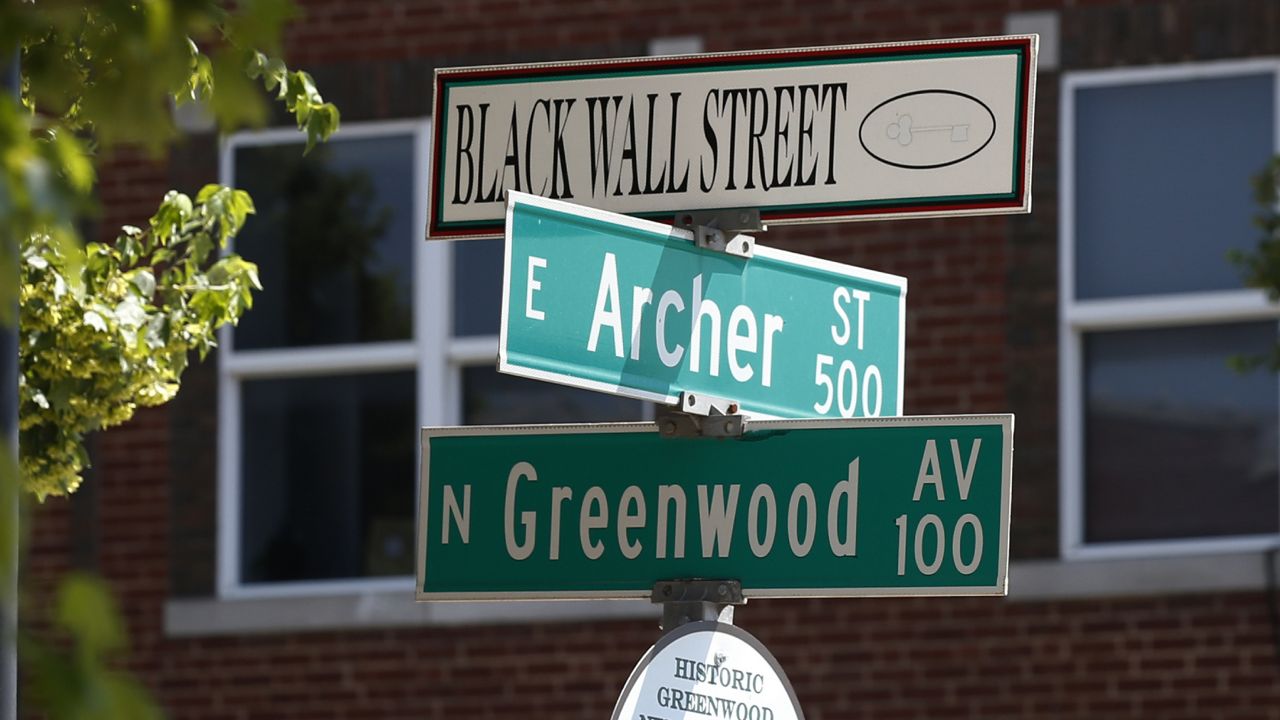Nearly a century after the Tulsa Race Massacre took place, survivors are still seeking justice from the U.S. government.
Between May 31 and June 1, 1921, white Tulsa residents took to the streets armed with weapons — many of which were provided by city officials — and slaughtered Black residents.
The massacre, which is still often referred to as the worst incident of racial violence in America’s history, saw 35 square blocks destroyed, hundreds of people injured and thousands more left homeless.
The mobs also destroyed Black Wall Street, which at the time was a thriving business district and one of the wealthiest Black neighborhoods in the country.
On Wednesday, three massacre survivors testified in front of the House Judiciary subcommittee on the Constitution, Civil Rights and Civil Liberties in an effort to push for compensation for survivors, their descendants, and the greater Black Tulsa community as a whole.
According to local news outlets, Viola Fletcher, 107, Lessie Benningfield Randle, 106, and Hughes Van Ellis, 100, are the only known living survivors of the massacre.
In moving and often heart-wrenching testimony, the three survivors described the lasting impact the massacre had on their families.
“I will never forget the violence of the white mob when we left our house,” Fletcher said in her opening statement. “I still see Black men being shot, and Black bodies lying in the street. I still smell smoke and see fire. I still see Black businesses being burned. I still hear airplanes flying overhead. I hear the screams. I live through the Massacre every day.”
Fletcher went on to say that the subcommittee has the power to “lead us down a better path,” telling members: “I am asking that my country acknowledge what has happened to me. The trauma. The pain. The loss. And I ask that survivors and descendants be given a chance to seek justice. Open the courtroom doors to us.”
"It means a lot to me to finally be able to look at you all in the eye and ask you to do the right thing," Randle told the committee, testifying virtually. "I have waited so long for justice."
"I have survived 100 years of painful memories and losses. By the grace of God, I am still here. I have survived to tell this story," Randall said, adding: "Hopefully, now you will all listen to us while we are still here."
Wednesday’s hearing was hardly the first attempt by survivors of the massacre to gain compensation or, at the very least, official recognition of the event from the government.
A commission formed in 2001 found that the city of Tulsa conspired with white residents to harm Tulsa’s Black community and recommended payments be given to survivors and their relatives.
Nearly 20 years later, no payments have been made.
In 2007, the same House subcommittee held a similar hearing on the matter, hoping for legislation that would create “a new federal cause of action for Tulsa-Greenwood Massacre claimants that would permit their cases to be decided on the merits,” according to House Judiciary Committee Chairman Jerrold Nadler (D-NY).
Nadler was the chair of the subcommittee during the 2007 hearing. The bill never made it out of committee.
Numerous court cases have been brought against the state by survivors, but the U.S. District Court for the Northern District of Oklahoma in 2005 ruled any request for compensation is beyond the statute of limitations. The U.S. Supreme Court declined to hear the case.
During Wednesday’s hearing, Nadler suggested “legislation that helps address relevant statutes of limitation issues that have bedeviled these claims in the past certainly remains one potential avenue for survivors and their descendants to obtain compensation.”
Last Friday, Rep. Sheila Jackson Lee (D-TX) led lawmakers in introducing a House bill that would recognize the “forthcoming centennial of the 1921 Tulsa Race Massacre,” and also calls on Congress to condemn the “violence and destruction perpetrated against the African-American community of Greenwood, in Tulsa, Oklahoma.”
This particular bill does not call for compensation for survivors of the massacre or their families.
Rep. Cori Bush (D-MO) did not mince words in condemning the lack of compensation for victims of the massacre, taking to social media to say: “We need reparations.”
“To my colleagues on this committee, there is only one reason why descendants of the Tulsa Race Massacre have not been compensated,” she said during Wednesday’s hearing. “And that reason is racism. It’s anti-Black racism, to be clear.”
No concrete legislation came out of the committee hearing.
Separately, attorney Damario Solomon-Simmons sued the city of Tulsa in September of last year, with Lessie Benningfield Randle as the lead plaintiff in the case.
The plaintiffs want the defendants to “abate the public nuisance of racial disparities, economic inequalities, insecurity and trauma their unlawful actions and omissions caused in 1921 and continue to cause 99 years after the massacre.”
The lawsuit does not specify a dollar amount sought by the plaintiffs but asks the court to declare that a public nuisance created by the defendants is capable of being abated “through the expenditure of money and labor.”
The suit also seeks a detailed accounting of the property and wealth lost or stolen in the massacre, the construction of a hospital in north Tulsa and the creation of a Tulsa Massacre Victims Compensation Fund, among other things. It also seeks immunity from all city and county taxes and utility expenses for the next 99 years for descendants of those who were killed, injured or lost property in the massacre.
Other defendants include the Tulsa Regional Chamber, Board of County Commissioners, Tulsa Metropolitan Area Planning Commission, Tulsa County Sheriff and the Oklahoma Military Department.



